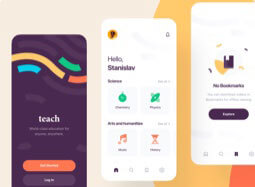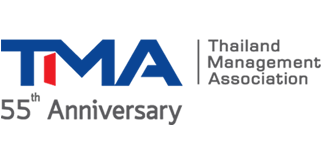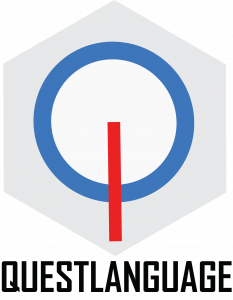Ready to conquer the
IELTS
Are you ready to conquer the IELTS exam?
We are ready to help you conquer the IELTS exam with our bespoke class that ensures practice in all four language skills, even in a fast-paced learning environment.
How is the IELTS course taught?
There are four learning formats for the IELTS course

Private Class
Schedule an exclusive live class and invite friends to learn together

Group Class
Live group classes to learn together and meet new friends at a scheduled time.

Live Online Class
Schedule private live classes with LearnSpace globally via the internet

LearnChat Class
Study with LearnChat+ anywhere via internet on smartphones, tablets, or computers.
About
Our IELTS course is taught in real-time through LearnSpace.

Our IELTS Private course is suitable for students who have no English language foundation to those who are already proficient. Students can choose their preferred day and time to study by informing us of their availability, making it suitable for those who cannot follow the institution’s schedule. The course’s advantage is one-to-one teaching with the teacher, providing opportunities to ask questions at any time and learn at a pace suited for the student. This helps students understand the content thoroughly and comprehensively.
The teacher will have time to explain the lesson and adjust teaching methods to best suit each student. This helps ensure that the learning experience is highly effective. The course’s content and exercises are designed similarly to the IELTS Basic and IELTS Advanced courses but are adapted to suit each individual student. With a suitable class schedule and challenging content, students will learn the importance of the GED exam and practice exercises based on the exam’s format to build confidence and achieve success in passing the exam on the first attempt.
The IELTS QUEST course is a short-term course focused on intensive exam preparation. In each hour of the IELTS class, students will study content that is most relevant to the exam as the institution selects the exam content. The course also incorporates various exam materials to help students prepare comprehensively. The course focuses on identifying the key aspects of each question, learning specific techniques to answer each part, and crucially, achieving high scores. This includes understanding and correctly using vocabulary words to improve scores. The course follows the IELTS scoring criteria, and students can choose their preferred date and time for online classes.
(International English Language Testing System)
IELTS
The International English Language Testing System (IELTS) is a language proficiency test designed to assess people’s ability to communicate in English, primarily for those who wish to study or work in organizations that use English as the main language of communication. The test is jointly developed by The University of Cambridge ESOL Examinations (Cambridge ESOL), British Council, and IDP: IELTS Australia. It is a widely recognized international standard language assessment that covers all four language skills – listening, reading, writing, and speaking. IELTS is the first and essential step for students who plan to study at international universities or study abroad.
The IELTS exam covers all four language skills – listening, reading, writing, and speaking.
All four skills are scored according to the test-takers’ abilities and ranked on a scale of Band 1-9 (1 being the lowest and 9 being the highest). After the scores for all four skills are calculated, the average score of the four skills is determined using the Band 1-9 scale, with full marks of each skill being set. The overall average score of all four skills is defined as the Band 9.
Top universities in Thailand generally require an average IELTS score ranging from Band 6-6.5 or higher, based on each university’s requirements.
สถานที่สอบ IELTS ในไทย
IELTS Testing Center
ข้อมูลการรับสมัคร
Admission information
ข้อมูล IELTS questions

For those who are considering taking either TOEFL or IELTS and are looking for which exam is “easier,” ETS, the organization responsible for TOEFL, conducted a study in which 1,153 test-takers had taken both exams. The results were summarized in the following table
“To determine which exam is ‘easier,’ the information on the specific requirements must also be considered. For example, the BALAC program at Chulalongkorn University (International Faculty of Arts) requires an English language proficiency test, with the TOEFL minimum score being 79 and the IELTS minimum score being 6.0. Therefore, based on this information, it can be concluded that ‘taking the IELTS’ is better.”
1. Based on the test results, those who score 6.0 in IELTS are equivalent to those who score 60-78 in TOEFL (different from the requirement stated earlier that those who score 6.0 in IELTS should be equivalent to those who score 79 in TOEFL). Therefore, achieving a score of 79 in TOEFL is ‘harder’ than achieving a score of 6.0 in IELTS.
2. The IELTS exam scores are calculated from the average of the four parts, where if the score has .25 decimal point, it is rounded up to .5, and if it has .75, it is rounded up to .0. For example, if a student scores 5.5, 5.5, 6.0, and 6.0 in the four parts, the total score is 23. When divided by four, the score is 5.75 (but since IELTS scores end with either .0 or .5, it would be rounded up to 6.0 in this situation). In contrast, the TOEFL exam score is the sum of the scores in the four parts, and there is no need for rounding like in IELTS.
In terms of content, it is not necessary that TOEFL is harder than IELTS as it depends on the proficiency level of each individual. However, the university requirements make the TOEFL exam seem harder than IELTS.
IELTS is a language proficiency test required for academic studies or work. The test is divided into four parts, and the listening and speaking skills are the same for both General Training and Academic modules. However, the reading and writing skills can be chosen between the General Training or Academic modules.
Test-takers who intend to pursue further education should choose the Academic Reading and Writing modules. While test-takers who are planning to move or work abroad should choose the General Training Reading and Writing Modules.
The first three sections of the test, which are listening, reading, and writing, must be taken on the same day without any breaks in between. As for the speaking test, test centers will schedule it within 7 days before or after the other sections of the test.
Listening section: Time limit of 40 minutes (30 minutes for listening to the audio and 10 minutes for answering the questions).
The test-takers will listen to a recording consisting of conversations and speeches with a variety of accents and dialects. They will listen to the recording once and be given time to read and answer the questions based on that recording.
Reading section: Time limit of 60 minutes.
– Academic Reading
The reading content consists of 3 passages that are taken from books, magazines, articles, and newspapers, with a focus on writing for non-expert readers. At least one set of questions will have a discussion-oriented approach.
– General Training Reading.
The reading content for the General Training module mainly focuses on everyday life situations in different countries, sourced from newspapers, advertisements, teaching manuals, and various other books. The test measures test-takers’ ability to comprehend and utilize information. The test will consist of one long passage which is descriptive rather than analytical.
Writing section: Time limit of 60 minutes
– Academic Writing.
The Academic Writing section has two parts: Part 1 requires test-takers to write a 150-word report based on a chart or diagram to showcase their ability to present information. Part 2 is a short essay of about 250 words where test-takers respond to an opinion or problem to demonstrate their ability to discuss, argue, and use appropriate language.
– General Training Writing.
The General Training Writing section is also divided into two parts. In Part 1, test-takers must write a letter of approximately 150 words which relates to requesting information or explaining a situation. In Part 2, test-takers must write a short essay of approximately 250 words in response to a topic or problem.
Speaking section: Time limit of 10-14 minutes.
The speaking test consists of a one-on-one interview where test-takers are assessed on their ability to respond to short questions and talk about familiar topics while engaging in a conversation with the interviewer.
The IELTS exam score ranges from 0 to 9.0, with a Band Score at the end of each score. Only .0 and .5 Band Scores are given. The actual score is converted from the raw score, and if the calculated Band Score has a decimal of .25 or more, it is rounded up to .5, and if it has .75 or more, it is rounded up to the next whole number. For example, if the calculated Band Score is 5.75, the score report will state 6.0.
Individuals who take the IELTS exam can use their scores to apply for further education both domestically and internationally.
(1) Domestically, most international programs in Thailand accept IELTS scores with a minimum score requirement ranging from 4.0 to 7.0.
(2) Internationally, countries within the British Commonwealth such as the United Kingdom, Australia, and New Zealand typically accept IELTS scores. In addition, many universities in the United States are increasingly accepting IELTS scores.
Some universities may set a high minimum score requirement of up to 8.5.
The IELTS exam is often an important part of the application process, but universities typically require other qualifications as well. For example, to apply for an international university course, applicants may need to submit test scores for other exams as well, such as SAT, CU-AAT, and MUIC.
The responsible organizations for conducting the IELTS exam in Thailand are two testing centers:
1. The British Council Thailand can be contacted at 02 657 5678. Their testing center in Bangkok is located at the Landmark Hotel, and they also have testing centers in Chiang Mai, Phuket, and Khon Kaen.
2. The IDP Education Service can be contacted at 02 638 3111. Their testing center in Bangkok is located at the CP Tower (Silom) or near provincial testing centers in Chiang Mai, Hat Yai, Phuket, and Khon Kaen.
The IELTS exam fee is 6,440-6,750 baht (for exams starting from September 19th, 2015 onwards).
Test-takers are required to pay the exam fee before the exam day, and there will be no refunds or changes allowed once registration is completed. If a test-taker is unable to attend the scheduled exam due to health reasons, they may request to reschedule for the next available exam date or receive partial fee refund. In this instance, test-takers must provide a medical certificate issued by a state hospital at least 2 weeks before the exam date to the testing center.
In addition, testing centers will close registration 3 days before the exam date or when the current exam session is full. On the exam day, test-takers are required to present a valid identification card that has not yet expired.
The IELTS exam is often an important part of the application process, but universities typically require other qualifications as well. For example, to apply for an international university course, applicants may need to submit test scores for other exams as well, such as SAT, CU-AAT, and MUIC.
CONTACT US












